The logical structure of this paper, stated in eight claims, is that:
- Canada was not a nation of immigrants but a nation built from the ground up by settlers and indigenous Euro-Canadians;
- The underlying principle of multiculturalism is that most humans have a very strong need to have their ethno-cultural identity recognized by the state, but in practice multiculturalism recognizes only the collective culture of minorities and immigrant groups while targeting the collective culture of Euro-Canadians;
- Western Nations were founded on both individual rights and kin-culture affinities;
- Canada was founded as an Anglo-Quebecois ethno-nation state combined with civic-liberal rights;
- multiculturalism as presently implemented across the West is not about the equal rights of long-established minorities but about creating a new multiracial identity through the importation of millions of foreigners with group rights;
- Pierre Trudeau aimed at the separation of culture and state, that is, the separation of Canada’s Anglo-Quebecois national identity from the Canadian state;
- the Charter of Rights is guided by human rights principles against Canadian cultural traditions while ‘protecting and enhancing’ the collective culture of minorities;
- since the Charter of Rights recognizes in principle the human need for a collective ethnic identity, it follows that the Charter can be used to defend white identity politics.1
1. Canada is Not a Nation of Immigrants but a Nation created by Settlers and Indigenous Euro-Canadians
The claim that ‘Canada is a nation of diverse immigrants’ amounts to a willful act of deception orchestrated by the Canadian establishment for the purpose of coercing Euro-Canadians into believing that their impending marginalization by immigrant diversification is a natural state of affairs consistent with Canada’s history. There is no historical evidence supporting this claim. Most of the men and women who built Canada were native to this nation, and the ones who came from outside were overwhelmingly French, Irish, British, Scottish and European until the 1970s.
The Quebecois and the Acadians were a people created through the fecundity of the women, not immigration. The Loyalists, too, were not immigrants but settlers native to the soils of British North America. Before Confederation, there were only ‘two quite limited periods’ of substantial immigration: from 1783 to 1812, and from 1830 to 1850. In these two periods, immigrants came primarily from the British Isles.
Immigration was not a major factor in population growth from 1850 to the end of the nineteenth century. In 1867, 79% percent of Canadian residents had been born in Canada. From 1871 to 1891, a high fertility rate ‘allowed the population of Canada to grow from 3.7 to 4.8 million’.
Immigration to New France, from 1608 to 1760, consisted of 10,000 settlers only, and thereafter it was ‘almost non-existent’. Immigration contributed about one seventh (1/7) to the total population growth of New France from its beginnings to its conquest in 1763.
The French-speaking population numbered about 90,000 by the 1770s, and thereafter, until the late 1800s, the population expanded rapidly, with women having 5.65 surviving children on average. The increase in population in Quebec during the 1800s was due mainly to the continuing high birth rate. By 1950, the Quebec population was almost 4 million. This increase was primarily a result of continuing high fertility rates. Only in the 1970s Montreal saw an increasing inflow of non-European immigrants.
Between 1896 and 1914, Canada did experience high immigration levels with 2.5 to 3 million arriving within this period. However, the ethnic composition of the nation remained 84 percent British and Quebecois, while the European component rose to 9 percent. Between 1941 and 1962 the population of Canada increased from 11.5 million to 18.5 million largely as a result of Canada’s ‘extremely high domestic birth rates’. It was only after the imposition of multiculturalism in 1971 that immigrants from outside the West started to arrive in large numbers.
Canada was created by native Euro-Canadians; all the institutions, legal system, educational curriculum, transformation of wilderness into productive farms, all the cities, the parliamentary traditions, the churches, the entire infrastructure of railways, ports, shipping industries, and highways, were created by hardworking Euro-Canadians.
It is also the case that almost all the men and women who came to Canada from the British Isles and elsewhere in Europe before 1914 were settlers, not immigrants, seeking to survive in a land sparsely populated and devoid of modern development. My claim here accords with all the dictionary definitions I have examined. The New Oxford English Dictionary, for example, is very clear in defining ‘immigrant’ as ‘a person who comes to live permanently in a foreign country’. Settler, however, is ‘a person who settles in an area, typically with no or few previous inhabitants’. Settlers create a new society, immigrants move into one that already exists.
2. Multiculturalism Recognizes the Collective Culture of Minorities and Immigrant Groups While Targeting the Collective Culture of Euro-Canadians
The theory of multicultural citizenship advocated in the main by Will Kymlicka and Charles Taylor is stained by a double standard, in recognizing the ‘deep bond’ that minorities, as ‘human beings’, have to their culture and ethnicity, while categorizing any form of ethno-cultural identity by Euro-Canadians as racist and illiberal. Kymlicka often asserts that ‘most people have a very strong bond to their own culture’, and that forcing immigrants to ‘shed their distinctive heritage and assimilate entirely to the existing cultural norms’ would amount to the suppression of ‘a very strong’ disposition ‘in the human condition’.2
The Canadians who developed the theory of multicultural citizenship are known as ‘liberal communitarians’. I agree with liberal communitarians that individual rights presuppose the existence of a community of people and that liberalism contains within its premises the idea that humans should have a right to have their cultural identities recognized, because such recognition is essential to the self-fulfillment of the individual.
I wonder, then, why Kymlicka and Taylor care only about the cultural rights and ethnic attachments of minorities, but not about the same human need Euro-Canadians may have to fulfill themselves as individuals within their own cultural landscape? While minorities are distinguished by culture and by ethnicity, ‘the majority Anglophone culture’ is identified only through its language and certain modern amenities. English culture is portrayed as a deracinated, neutralized sphere consisting of modern conveniences – economic, educational, and social institutions – intended ‘in principle’ to serve anyone regardless of cultural background. The English are mere possessors of individual rights, whereas every other ethnic group enjoys both individual and group rights.
Whenever Kymlicka and Taylor identify the English/Europeans by history and culture, it is scornfully as ‘colonizers’ and ‘racists’. The only cultural attribute European Canadians are allowed to celebrate is multiculturalism. The words ‘pride’, ‘cultural particularity’, and ‘culturally meaningful lives’ are reserved exclusively for ethnic immigrant groups. Kymlicka explicitly says that multiculturalism cannot succeed as long as ‘native born [ethnic European] citizens with a strong sense of national identity or national pride’ are allowed a voice in the public arena, regularly labelling those who disagree with mass immigration as ‘xenophobic’ and ‘intolerant’.3
This is patently unfair. Just as minorities have been granted the collective right to be concerned with the ways in which forced assimilation may impact negatively on their cultural identity, so the Euro-Canadian majority should have a collective right to be concerned about the ways their Canadian heritage, customs, and historical affinities are being decimated by the combined effects of mass immigration and anti-white propaganda.
3. Western Nations Were Founded on Both Individual Rights and Ethnic Nationalist Affinities
It is often said that Western nations were meant to be based on an ‘inclusive’ form of civic identity defined not by culture and ethnicity but by liberal values alone, such as equality under the law, separation of church and state, and individual rights, which can be shared by any human across the world. This is not true. European nations were created on the basis of ‘a shared heritage, a common language, a common faith, and a common ethnic ancestry’. This is amply supported by the foremost expert on nationalism, Anthony D. Smith, and, more recently, by Azar Gat’s book, Nations: The Long History and Deep Roots of Political Ethnicity and Nationalism (2013). Gat goes further than Smith in employing the science of sociobiology to show that nations ‘are rooted in primordial human sentiments of kin-culture affinity, solidarity, and mutual cooperation, evolutionarily engraved in human nature’. Ethnicity is by far the ‘most important factor’ in national identity.4
History shows, in fact, that those states possessing a high degree of ethnic homogeneity, where ancestors lived for generations – England, France, Italy, Belgium, Holland, Sweden, Norway, Finland, and Denmark – were the ones with the strongest liberal traits, constitutions and institutions. That is why minority rights became a legitimate component of these liberal nations. By contrast, those states (or empires like the Austro-Hungarian Empire) composed of multiple ethnic groups were the ones enraptured by illiberal forms of ethnic nationalism and intense rivalries over identities and political boundaries. Research papers are showing that as diversity increases in the West communities tend, in the words of Robert Putnam, to ‘distrust their neighbors, regardless of the color of their skin, to withdraw even from close friends, to expect the worst from their community and its leaders,’ to volunteer less in community activities, give less to charity … to vote less … and ‘to huddle unhappily in front of the television.’5
4. Canada was founded as an Anglo-Quebecois Ethno-State combined with Civic Rights
I disagree with Janet Ajzenstat’s fabrication that ‘the Fathers of Confederation … intended to give the new country … a civic identity’, that is, to ‘inculcate a sense of nationhood’ based only on equality of rights and ‘inclusive’ of all cultures and races, rather than a country ensuring British/French cultural values.6 While the British North America Act was a rejection of the subordination of French Canadians to the majority British culture, and an endorsement of the central liberal principle that the laws of the lands must apply equally to all citizens, it is incorrect to infer that the Fathers were not concerned with the cultural identity of Canada.
At the time of Confederation about 70 percent of the population spoke English and 30 percent French. The Fathers took it for granted that with language came culture, and that the French and the English were the ‘two founding races’. They understood that Francophones saw themselves as a distinct nation, a distinct collectivity of people, within Canada. While the Anglophones did not see themselves as a distinct cultural nation, they did see themselves as a people of British heritage who were creating a majority British-Canadian nation that would acknowledge the French majority in Quebec, but would see itself as an integral part of the British Empire. French Canadians would gain control of a provincial government with its own legislature, Civil Code, French as the official language in Quebec, and religious minorities enjoying the right to separate schools in all provinces. The BNA Act was a document consistent with liberal principles, while simultaneously committed to the collective well-being of Canada as an ethno-state rather than as a mere aggregation of abstract and rootless individuals.
5. Multiculturalism is Not about Minority Rights but about Erasing the Cultural Identities of Western Peoples
The theory of multicultural citizenship has been lauded as an effort to extend equality of rights to ‘previously excluded groups’ inside Western nations. The reality is that this theory is part of a radical program aimed at populating the West with millions of foreigners-turned-immigrants possessing special group rights in order to break apart the ethnic identities of Euro-Canadians. It all seems innocent enough when Kymlicka says that, just as indigenous peoples and historic minorities should be granted minority rights, so should ‘permanently settled immigrant groups’.7 But he is not talking about rights for a static group of settled immigrants. He is formulating a ‘transformative’ form of ‘multicultural citizenship’ for a new Canada dedicated to the integration of millions of new immigrants. The aim of multiculturalism, in Kymlicka’s words, is to bring about a Canada that is ‘never again’ ‘typically white and Christian.’8
This theory was not formulated for Canada only, or so-called ‘immigrant nations’ like Australia and the United States. The major theorists of multiculturalism have spent a lot of time trying to persuade Europeans that if their nations are to protect minority rights they, too, must import millions of immigrants. Kymlicka knows that ‘in most Western countries, explicit state-sponsored discrimination against ethnic, racial, or religious minorities had largely ceased by the 1960s and 1970s’.9 He knows that Western nations were already legislating, through the 70s to the 90s, a variety of laws and policies designed to afford cultural self-determination and territorial rights to minorities such as the Quebecois, Basques, Catalans, Welsh, and Aboriginals. The theory of ‘immigrant multiculturalism’ was not intended to protect the rights of established minorities but was intended to create a totally new multiracial identity across the Western world by granting minority rights to millions of foreign immigrants.
6. Former Prime Minister Pierre Trudeau aimed at the Separation of Cultural Nationality from the Canadian State
There is nothing in the core principles of liberalism requiring Europeans to embrace immigrant diversity. To the contrary, diversification without open dialogue is an illiberal ideology rooted in cultural Marxism. Cultural Marxism is an outgrowth of Marxism which focuses on radically altering the cultures and ethnicities of the West. But it cannot be denied that Western liberal states have a weak conception of their historically rooted collective identity. This made them susceptible to cultural Marxist infiltration and corruption.
Liberals have an imaginary conception of their nation states as associations created by isolated individuals reaching a contract amongst themselves in abstraction from any prior community, for the sole purpose of ensuring their natural right to life, liberty, and happiness.10 They have a predilection to whitewash the fact that their liberal states, like all states, were forcibly created by a people with a common language, heritage, racial characteristics, and a sense of territorial acquisition involving the derogation of out-groups.
This is why Canadian leaders acceded so easily to Trudeau’s multicultural programme. It is not that Canadians were devoid of any sense of collective identity. Canadians did understand that the English and the French were distinctive people. Strong immigration restrictions prevailed until the 1960s against people deemed to be members of ethnic outgroups. The weakness of liberal leaders lay in their imaginary belief that their liberal rights were the sole founding principles of Canada, which blinded them to the factual reality that their nations were created by ethnic groups against other groups with different territorial interests.
The experience of WWII intensified this imaginary belief to the point that Western leaders, the same ethnocentric nations that fought Nazism, started believing that any form of collective identity was inherently illiberal. They started believing that every nation should be bound together by transnational common values, by universal human rights. They also started believing that all humans regardless of nationality should be afforded the same rights to life, liberty, and economic well-being, as the citizens of their own nations
Pierre Trudeau’s anti-nationalism needs to be seen in the context of this intellectual climate. The conclusion Trudeau reached was that Canadian leaders ‘must separate once and for all’ the concepts of state and culture. No one ethnic group, neither the Anglo in Canada nor the Quebecois in Quebec, must lay claim over Canada’s cultural identity.11 Just as religion was separated from the state, so must culture be separated from the state. Canada must be identified as a ‘polyethnic society’ and in this way Canada would truly become a liberal-democratic society. A nation that prioritizes the ethno-culture of the majority, and thereby establishes a nationalism that elevates the interests of this majority above the interests of minorities, cannot be truly democratic. The only expectation on the part of the government would be to ensure that all Canadians learned the official languages and accepted the values of multicultural liberalism. There would be two official languages but no official culture.
Trudeau further argued that creating a Canada without a national cultural identity would make this nation a model for the solution of ethnic strife and nationalist aggrandizement across the world. Canadian federalism would be ‘an experiment of major proportions … a brilliant prototype for the moulding of tomorrow’s civilization.’12 Accordingly, Trudeau rejected the bicultural nationalism, which was being proposed during these years by many Canadians, in favour of a multicultural identity. He tried to justify this decision saying that ‘biculturalism does not properly describe our society; multiculturalism is more accurate’.13 But Trudeau was not really describing Canada as it was in the 1970s, a nation with a population that was 96 percent Euro-Canadian. He was envisioning multiculturalism as a project for the future against the past. Canada was not going to become ‘a brilliant prototype’ merely by acknowledging its intra-European diversity or by fighting discrimination against a small number of long established minorities. Cultural nationalism was a major source of human conflict and degradation of the human rights of individuals. The way to break cultural nationalism, he concluded, was to populate the nation with different cultures. Hugh Forbes, a supporter of Trudeau’s dream, has observed that it was clear from the moment official multiculturalism was instituted in 1971 that its success would ‘obviously depend on the deliberate diversification of the Canadian population’.14
7. The Charter of Rights is Guided by Human Rights principles against Canadian Cultural Traditions while ‘protecting and enhancing’ the Collective Culture of Minorities
This multicultural agenda would be embodied in the Charter of Rights enacted in 1982. The foremost legal experts view the Charter as a ‘transformative’ constitution that elevated ‘to the status of supreme law’ the ‘traditional core values of liberal democracy, as adapted to the reality of the post-WWII … multicultural nation state’. These words come from Lorraine Weinrib, Professor at the Faculty of Law, Toronto.15 She is emphatic in viewing the Charter as a document that emerged out of the determination of Western nations, after the experiences of WWII, to ensure ‘higher law guarantees’ of the core values of liberal democracies strengthened by human rights standards. Brian Dickson, Former Chief Justice of the Supreme Court of Canada, also views the Charter as ‘the logical culmination of Canadian developments in the field of human rights – it builds on provincial and federal human rights codes and the Canadian Bills of Rights.’16
The novelty of the Charter, they argue, was that its ‘transformative aspirations’ were not ‘chained to Canadian legal history’ but were really ‘transnational’, the ‘hallmark of liberal democracy in the aftermath of the Second World War’ in the Western world. The ‘transformative aspiration’ was to promote diversity and human rights in Canada in contradistinction to any ‘traditional conservative moral code based on shared culture, history, religion, or ethnicity’.17 Every remnant of Canada’s British identity had to go, including the history of Canada as a nation founded by the English and the French.
The Charter, Section 15 in particular, which affirms equal rights regardless of race, religion, or sex, was said to represent ‘one of the most important and dynamic forces on the road to social justice’. By ‘dynamic’ legal experts meant that Canadians would be able to draw on equality provisions to eliminate every remaining inequality, as defined by current and future elites educated in our cultural Marxist universities. They took it as a given that Canadians are a people marching toward a future when there will be ‘equal social justice’. They never defined ‘social justice’ but simply took for granted that the equality provisions are a ‘dynamic force’ intended to ensure ‘social change’ and ‘equality’.
What about the truly dynamic and transformative force that is immigration, in bringing hundreds of thousands of individuals from collectivist cultures, creating a cultural reality that is bound to influence the meaning of Section 27, which says that the Charter ‘shall be interpreted in a manner consistent with the preservation and enhancement of the multicultural heritage of Canadians’?18 Will Canada find itself in a situation in which semi-autonomous groups wishing to preserve their special characteristics may interpret Section 27 to mean that they have a right to preserve cultural characteristics that are deemed to be essential to the human dignity of the members of their group, even if this entails less respect for the principle of individual rights?
I understand it would be misleading to think that Section 27 grants every immigrant group the same constitutional right to survive as distinct communities as it grants to Aboriginal peoples, the national minority of Quebec, denominational communities, and English and French linguistic minorities. I understand that Section 27 has to be seen in the context of the other individual rights protected by the Charter. The Charter, however, does grant special rights to non-European cultural groups that can claim there was, and continues to be, discrimination and lack of opportunities for their cultural expression. Section 15 (2) of the Charter says that the government has the constitutional right ‘to create special programs aimed at improving the situation of individuals who are members of groups that have historically experienced discrimination in Canada’.19
Again, I understand that it would be far-fetched to take these words to mean that the Charter, in the words of the constitutional expert Joseph Magnet, grants ‘maintenance claims’ to immigrant minorities, that is, group rights to ‘maintain intact, indefinitely into the future, the distinguishing features of identity that bind them together as a distinctive society’.20
But this interpretation, on its own, is inadequate, in that it offers a strictly legalistic account of the meaning of multiculturalism and group rights, without the slightest awareness of the wider social and philosophical significance of multiculturalism, its meaning in our universities, media, minority associations, and thousands of publications. It is flawed as well in ignoring the truly ‘dynamic force’ of mass immigration and the rapidly changing ethnic balance of power in Canada. Joseph Magnet, actually, appears to be aware that the meaning of Section 27 may be open to strong collectivist interpretations in the future. Although he writes in a purely conceptual manner, he employs the concept of structural ethnicity to refer to ‘the capacity of a collectivity to perpetuate itself … resist assimilation, and propagate its beliefs and practices’. He even says that ‘to the extent the structural ethnicity principle inheres in Section 27, a dramatic impact on Canada’s Charter system results’.21
He notes that Section 27, after all, ‘fell into place at the insistence of … immigrant minorities’. Section 27 ‘must be taken [as] claims for greater power welling up from ethnic minorities unprotected by historic constitutional provisions’, about minorities looking for something closer to ‘maintenance claims’.22 He then says that immigrant minorities could well seek to limit individual rights for the sake of preserving ’the essential features’ of their cultural identity. ‘Multiculturalism in the Charter could alter the minimum standards of respect for personal liberty … in favour of the special needs of semi-autonomous groups to preserve their special characteristics.’23
It seems to me that Section 27 will be interpreted differently in the coming decades, as immigrant groups continue to grow exponentially and continue to form ethnic enclaves across Canada. The fact that no one cares to offer time-limits as to how long immigrants will require special group rights is inseparable from the more pertinent fact that no one cares to offer any limits on the number of immigrants that should come every year and on the number of years that Canada should be open to mass immigration.
We need a proper scientific analysis of ethnic group interests. Numerous scientific studies demonstrate that all living organisms survive inside in-groups in competition with out-groups. In-group cooperation and preference is an evolutionary strategy consistent with the survival, enhancement, and protection of one’s own herd, family, or people. Such altruistic dispositions as sharing, loyalty, and caring, are exhibited primarily and intensively within in-groups rather than toward a universal ‘we’ in disregard for one’s people. Conflict escalation between ethnic groups is lower when physical barriers exist between them. We all know that Europeans tend to be more individualistic, less collectivistic in their ethnic awareness, and that they have a unique capacity to think in universal moral terms, which is why they originated the Enlightenment, a rational system of law, and the method of modern science. Non-Europeans are more collective and racially aware and more inclined to practice ethnic nepotism. Whites do exhibit ethnocentrism but implicitly in their voting patterns, choice of residential areas, and schools for their children.
Liberal communitarians do not use the language of evolutionary psychology, but their view that humans have a natural need to have their cultural identity validated amounts to the same. In his discussion of multiculturalism in the Charter, Joseph Magnet actually appeals to findings in social psychology to show how important it is for individuals to belong in a group of people with a similar culture. He says that ‘social psychologists have demonstrated that the individual self is incomplete without integration into a social group’. He adds that ‘voluntary identification with an ethnic group’ ‘completes a significant aspect of personality’. ‘Attacks on cultural heritage are thus attacks on the individual selves of the ethnic group’s members.’24
One may ask: Do social psychologists have anything to say about how Anglo-Canadian individuals may feel incomplete without integration into their own cultural group? Is Anglo ethnicity a significant aspect of the personality of Anglo individuals? Are attacks on the cultural heritage of Anglos attacks on the individual members who make up the Anglo group? Magnet does not have a word to say about the majority Anglo population, or the Euro-Canadian population at large. It is assumed that they don’t have a culture but are just abstract individuals with rights and with a multicultural programme to enhance alien cultures.
8. The Charter Can Be Used to Defend Euro-Canadian Collective Cultural Identity
This double standard against Euro-Canadian identity has to be openly discussed if Euro-Canadians are going to survive as the rightful majority in Canada. The meaning of multiculturalism, and what the Charter means by multiculturalism, will be determined by the proportion of non-Europeans in Canada and the willingness of Euro-Canadians to affirm their collective identity. The current situation in which Euro-Canadians are under the obligation of reconstructing their culture according to transnational values formulated by anonymous human rights lawyers and globalist academics, while simultaneously expected to ‘understand’ the ‘human need’ minorities have to belong in a cultural group, cannot go on much longer.
If we are to overcome this double standard, Section 27 must be interpreted in a manner ‘consistent with the preservation and enhancement’ of the culture of all ethnic groups in Canada, including Euro-Canadians. The Multiculturalism Act clearly states that ‘all citizens,’ including Euro-Canadians, ‘are equal and have the freedom to preserve, enhance and share their cultural heritage.’25 The founding of Canada by Euro-Canadians is part of this heritage. Insomuch as multiculturalism uses the language of collective rights to guarantee the survival of ‘minority’ groups, it follows that Euro-Canadians have a group right to use multiculturalism to ‘preserve’ their identity as a group in Canada facing immigration patterns that are fast reducing them to a demonized minority.
The establishment wants to hide this constitutional reality from Euro-Canadians. Globalist conservatives want Euro-Canadians to acts as ‘individuals’ without group rights while lamely begging masses of immigrants arriving yearly to ‘embrace’ this individualism. They are oblivious to the fact that immigrants come from collectivist cultures and that second-generation immigrants are only assimilating to a deracinated, globalist, anti-white set of nations. They do not understand that current demographic trends will tilt the balance of ethnic power decisively in the favour of groups pursuing ethnic interests in competition with Euro-Canadians. As Asians, Blacks, Aboriginals, Indians, Chinese, and non-Whites generally express in full their constitutional group rights in ethnic voting patterns and through the creation of associations, clubs, and churches, Euro-Canadians will have no option but to assert their constitutional right to engage in ‘white identity politics’.
References
1This paper draws on my book, Canada in Decay: Mass Immigration, Diversity, and the Ethnocide of Euro-Canadians (Black House Publishing Ltd, 2017).
2Will Kymlicka, Multicultural Citizenship: A Liberal Theory of Minority Rights (Oxford University Press, 1995), pp. 8, 84, 90.
3Keith Banting and Will Kymlicka, ‘Canadian Multiculturalism: Global Anxieties and Local Debates,’ British Journal of Canadian Studies, vol. 23, no. 1 (2010), p. 60.
4I discuss civic and ethnic nationalism in ‘The Greek-Roman Invention of Civic Identity Versus the Current Demotion of European Ethnicity.’ The Occidental Quarterly (Vol. 15, No. 3, Fall 2015).
5Cited in Michael Jonas, ‘The Downside of Diversity’ The Boston Globe (August 5, 2007. Since Putnam’s research came out in 2006, many studies have followed addressing the effects of immigration and diversity on community cohesion, trying to paint as pleasant an image of diversity as the academic establishment expects to see, but releasing data which actually show that diversity has resulted in a decline in social capital, community trust, and overall civic engagement. I offer an overview of these studies in ‘Steven Pinker’s Anti-Enlightenment Attack on White Identitarians’, The Occidental Quarterly (Vol. 18, No. 2, Summer 2018); and in ‘Diversity is Destroying the Cohesion and Social Capital of Western Nations’, in Council of European Canadians (November 10, 2017), https://www.Euro-Canadian.ca/2017/11/diversity-destroying-cohesion-social-capital-whites.html.
6Janet Ajzenstat, The Canadian Founding: John Locke and Parliament (McGill-Queen’s Press).
7Will Kymlicka, ‘Multiculturalism: Success, Failure, and the Future’ Migration Policy Institute, Reports (February 2012), https://www.migrationpolicy.org/research/TCM-multiculturalism-success-failure.
8Ibid. See also Finding Our Way, Rethinking Ethnocultural Relations in Canada (Oxford University Press, 1998), where he writes about a Canada that will ‘never again … be white … a British country.’ (p. 57).
9Will Kymlicka, ‘Multiculturalism: Success, Failure, and the Future’.
10I am drawing on Carl Schmitt’s critique of liberalism; see Ricardo Duchesne, ‘Carl Schmitt is Right: Liberal Nations Have Open Borders Because They Have No Concept of the Political’, The Occidental Quarterly (Vol. 17, No. 1, Spring 2017).
11Pierre Trudeau, ‘The New Treason of the Intellectuals’. This essay, originally published in Cité Libre in 1962, is now available online, https://docs.google.com/document/d/1CChvPQwRJWj02WN3nur7jKr9nwj8aBgPKzSliSIbMpY/edit?pli=1#heading=h.gwl098qh9ien.
12Ibid.
13Cited in ‘Trudeau as the First Theorist of Canadian Multiculturalism,’ in Stephen Tierney, editor, Multiculturalism and the Canadian Constitution (UBC Press, 2007), p. 30.
14Ibid, p. 38.
15Lorraine E. Weinrib, ‘The Canadian Charter’s Transformative Aspirations,’ in Magnet et al. The Canadian Charter of Rights and Freedoms: Reflections on the Charter After Twenty Years (Butterworths, 2003), p. 18.
16Brian Dickson, ‘The Canadian Charter of Rights and Freedoms: Context and Evolution,’ in Beaudoin and Mendes, Eds. The Canadian Charter of Rights and Freedoms (Carswell, 1996), chapter 1, p.19.
17Lorraine E. Weinrib, ‘The Canadian Charter’s Transformative Aspirations’.
19Ibid.
20Joseph Eliot Magnet, ‘What Does ‘Equality Between Communities’ Mean?’ in Magnet et al. The Canadian Charter of Rights and Freedoms: Reflections on the Charter After Twenty Years (Butterworths, 2003), p. 282.
21Joseph Eliot Magnet, ‘Multiculturalism in the Canadian Charter of Rights and Freedoms,’ in Beaudoin and Mendes, Eds. The Canadian Charter of Rights and Freedoms (Carswell, 1996), Chapter 18.
22Ibid.
23Ibid.
24Ibid.
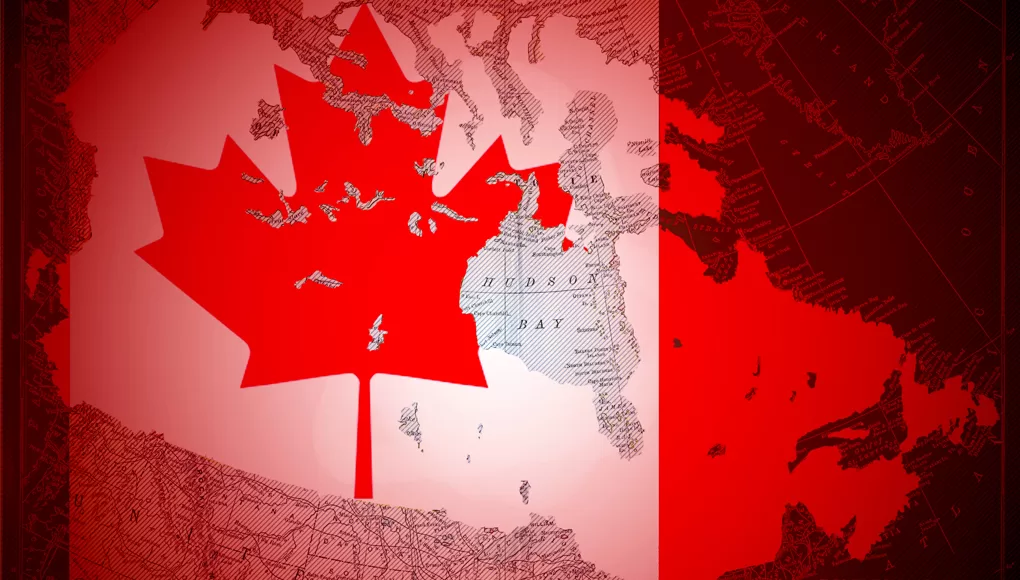


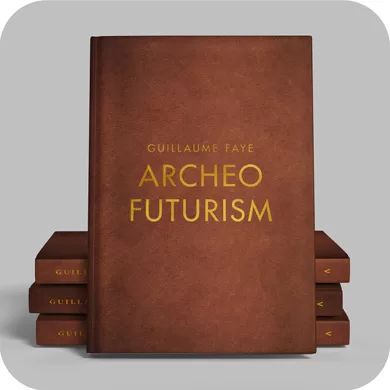

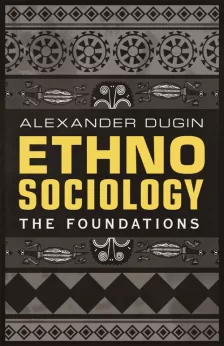

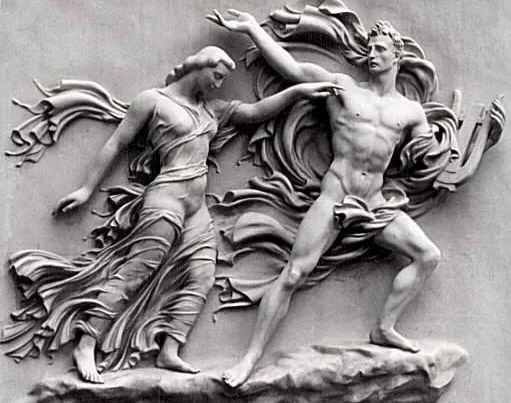
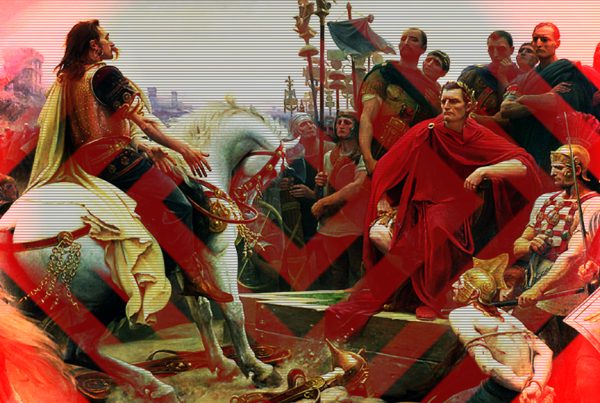

[…] Originally published at Arktos Journal. […]